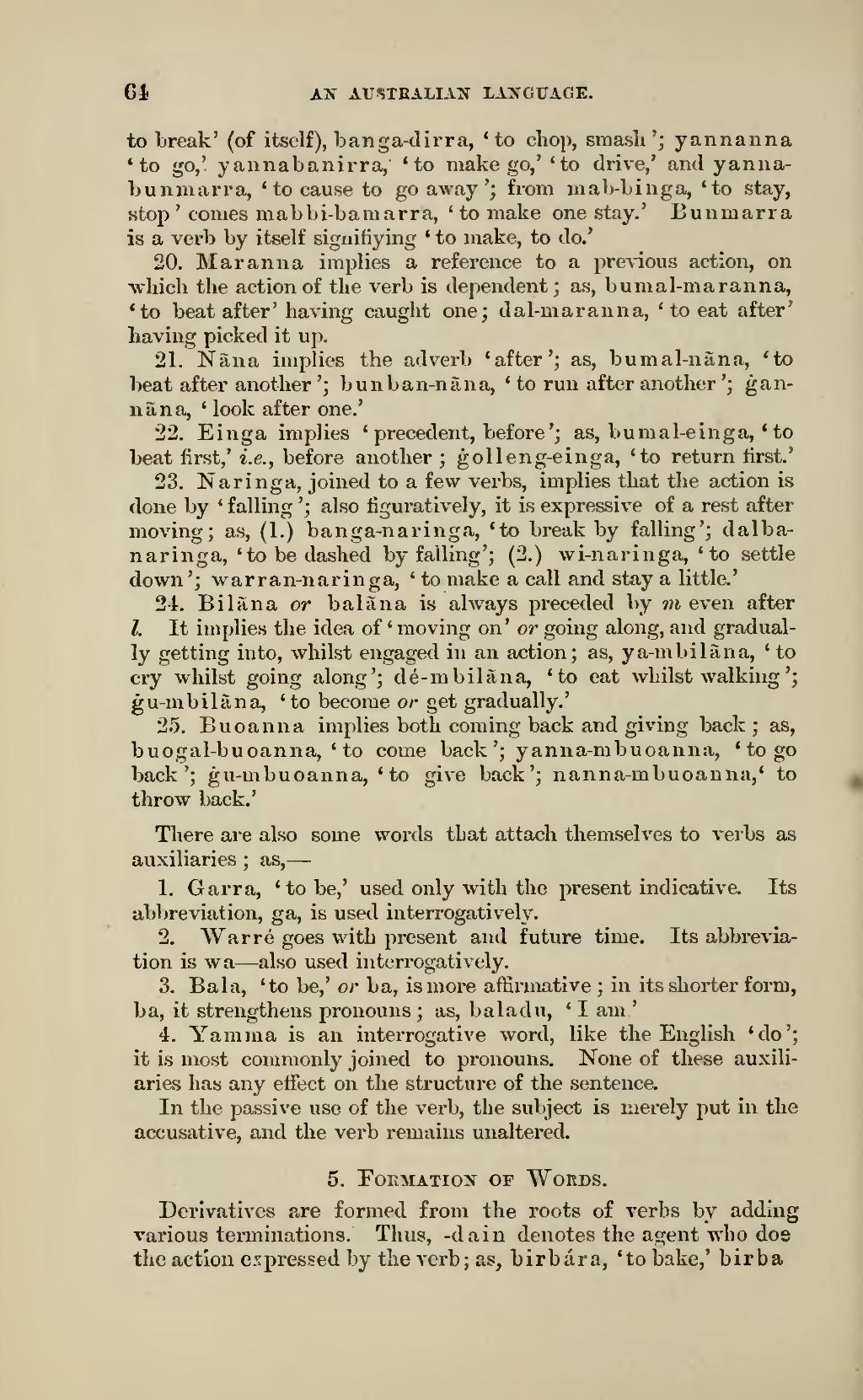Git A2f AL'STKALIAN LANGUAGE.
to break' (of itself), banga-dirra, 'to chop, smasli '; yannanna 'to go,' yannabanirra,' 'to make go,' 'to drive,' and yaniia- buninarra, ' to cause to go away '; from malvbinga, 'to stay, stop ' comes mabbi-bamarr a, ' to make one stay.' Bun man a is a vei-b by itself signifiying ' to make, to do.'
20. Maranna implies a reference to a previous action, on which the action of the verb is dependent; as, bumal-maranna, 'to beat after' having caught one; dal-mavanna, 'to eat after' having picked it up.
21. Nana implies the adverb 'after'; as, bumal-nana, 'to beat after another '; bunban-ntlna, ' to run after another '; g an- na n a, ' look after one.'
22. Einga implies ' precedent, before '; as, bumal-einga, ' to beat first,' i.e., before another; golleng-einga, 'to return first.'
23. Naringa, joined to a few verbs, implies that the action is done by ' falling '; also figuratively, it is expressive of a rest after moving; as, (1.) banga-naringa, 'to break by falling'; dalba- naringa, 'to be dashed by falling'; (2.) wi-naringa, 'to settle down'; warran-naringa, ' to make a call and stay a little.'
24. Biliina or balana is ahvays preceded by m even after I. It implies the idea of ' moving on' or going along, and gradual- ly getting into, whilst engaged in an action; as, ya-mbilana, ' to cry whilst going along'; de-mbilana, 'to eat Avhilst walking '; gu-mbilana, 'to become or get gradually,'
25. Buoanna implies both coming back and giving back; as, buogal-buoanna, 'to come back'; yanna-mbuoanna, ' to go back'; gu-mbuoanna, 'to give back'; nanna-mbuoanna,' to throw back.'
There are also some words that attach themselves to verbs as auxiliaries ; as, —
1. Garra, ' to be,' used only with the present indicative. Its abbreviation, ga, is used interrogatively.
2. "Warre goes with present and future time. Its abbrevia- tion is wa — also used interrogatively.
3. Bala, 'to be,' or ba, is more affirmative ; in its shorter form, ba, it strengthens pronouns; as, baladu, ' I am '
4. Yamma is an interrogative word, like the English 'do'; it is most commonly joined to pronouns. None of these auxili- aries has any effect on the structure of the sentence.
In the passive use of the verb, the subject is merely put in the accusative, and the verb remains unaltered.
5. EOKMATION OF "WORDS.
Derivatives are formed from the roots of verbs by adding various terminations. Thus, -dain denotes the agent who dos the action e.^pressed by the verb; as, birbara, 'to bake,' birba
�� �

